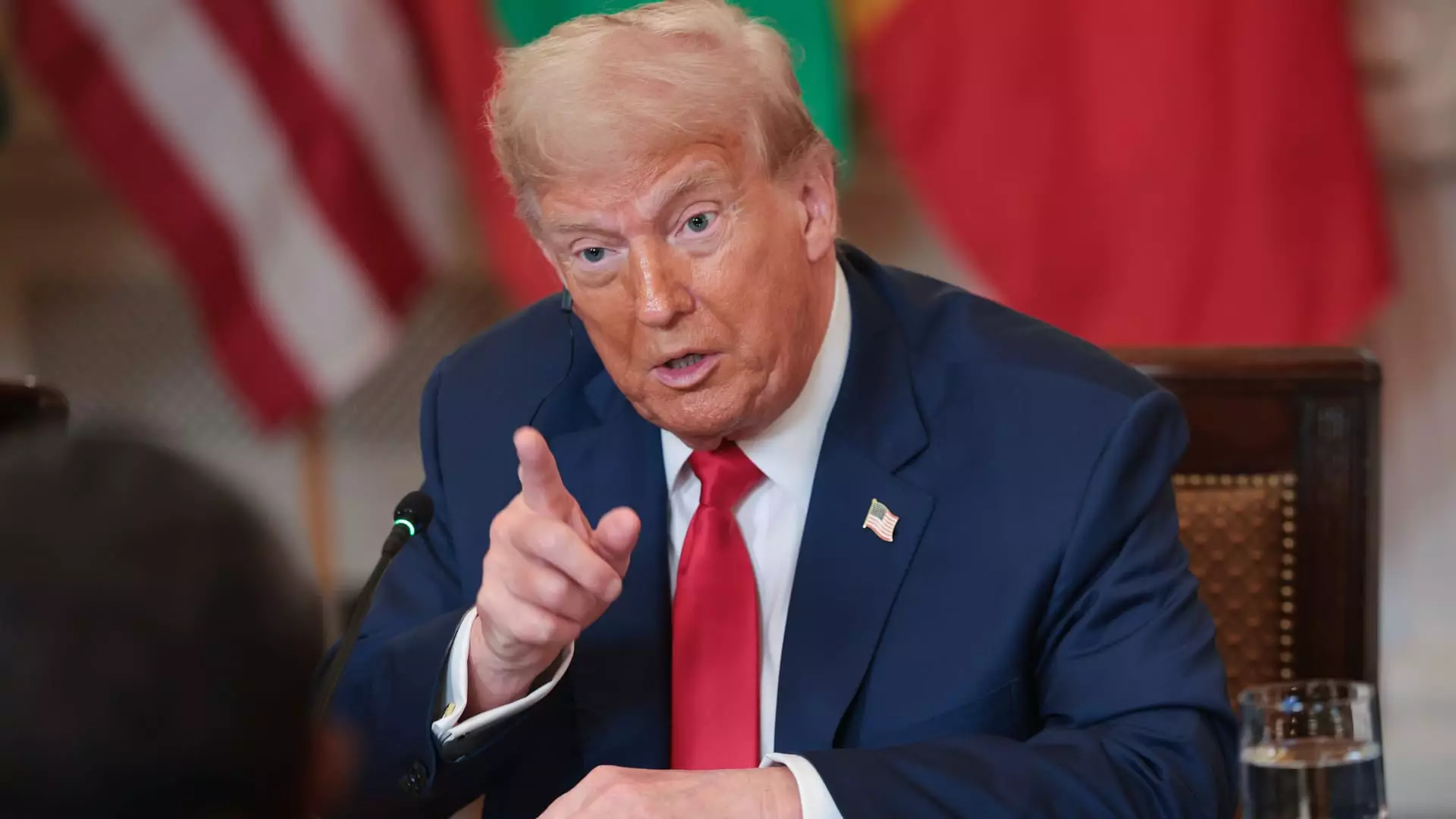In recent months, the aggressive use of tariffs by the United States underscores a troubling shift in international economic diplomacy. President Donald Trump’s announcement of a 50% tariff on Brazilian imports signals more than just economic protest—it reveals a reckless inclination toward coercive diplomacy that risks destabilizing global markets and undermining international cooperation. While some may argue that tariffs serve as leverage to address unfair trade practices or political disputes, the reality is that they often deliver disproportionate damage to complex economies, fracturing diplomatic relations and enflaming geopolitical tensions.
This 50% tariff, ostensibly a punitive measure related to Brazil’s internal politics and legal proceedings against Jair Bolsonaro, epitomizes the problem of weaponizing trade. It transfers domestic political disagreements abroad, turning economic policy into an extension of personal and partisan disputes. This approach disregards the nuanced realities of international relations, where diplomacy should prioritize dialogue and mutual respect rather than economic punishment. Such measures risk triggering retaliatory tariffs, trade wars, and economic instability—outcomes that do a disservice not only to the targeted nation but also to global purchasers and consumers.
Moreover, Trump’s rhetoric frames tariffs as a correction to “unfair” trade relationships, yet the data tell a different story. The U.S. maintains a goods trade surplus with Brazil, with exports exceeding imports and a net positive balance of $7.4 billion in 2024. This disconnect between narrative and the economic facts points to a strategic misinterpretation fueled by political motives rather than economic realities. When tariffs are decoupled from tangible trade imbalances, they serve more as symbolic gestures of dominance or punishment rather than genuine efforts to foster fair trade.
Political Manipulation and the Erosion of International Norms
President Trump’s decision to target Brazil based on internal legal proceedings and social media policies underscores a troubling tendency: the use of economic sanctions and tariffs to influence or punish foreign internal politics. This approach strips away the sovereignty and dignity of nations, reducing complex political processes to bargaining chips in international power plays. Such tactics send a dangerous message that leaders’ legal and democratic struggles can be externally coerced through economic warfare.
This trend undermines established norms of international diplomacy, where issues are to be addressed through dialogue rather than punitive tariffs. It also establishes a precedent whereby domestic political conflicts are weaponized to serve broader geopolitical agendas. For countries like Brazil, this tactic signals that their internal affairs are subject to external judgment, potentially destabilizing their political institutions and further eroding trust among global partners.
Furthermore, Trump’s framing of Brazil’s judicial actions as “attack[s] on free elections and free speech” reveals a fundamental misunderstanding—or perhaps a deliberate misrepresentation—of Brazilian sovereignty and judicial independence. It’s dangerous to equate national judicial processes with threats to democracy, especially when these processes are rooted in domestic legal principles. Interfering with domestic legal affairs via economic penalties stokes polarization and can diminish global faith in multilateral institutions that uphold sovereignty and legal integrity.
Economic Consequences and the Fragile Global Marketplace
The impact of such tariffs extends beyond diplomatic strife; they threaten to destabilize the interconnected web of global supply chains and markets. The initial idea that tariffs will repair trade imbalances fails to acknowledge the complex, multilayered nature of modern economies. For instance, the U.S.-Brazil trade surplus challenges Trump’s claim of “unsustainable deficits,” and moreover, the threat of escalation—where retaliatory tariffs could be introduced—risks igniting a full-scale trade conflict.
Global markets are sensitive to these signals of protectionism. The immediate response to Trump’s tariff threat was a coin drop in Brazil’s currency, which fell over 2% against the dollar—a reminder of how fragile confidence can be in such turbulent times. Investors and international businesses thrive on stability and predictability—qualities that tariffs and aggressive trade rhetoric undermine. When policymakers prioritize short-term political wins over long-term economic stability, they sow seeds for uncertainty and volatility that harm consumers, workers, and consumers alike.
Additionally, the aggressive stance on digital trade and accusations of unfair practices deepen the divide. Instead of fostering cooperation to address legitimate concerns, such accusations tend to fuel mistrust and retaliatory behavior. They also overlook the realities of digital economies, where regulation and fairness are evolving questions that demand multilateral dialogue rather than unilateral punitive measures.
A Center-Left Perspective: Toward Reasoned and Cooperative Diplomacy
From a centrist liberal perspective, such bellicose trade tactics are fundamentally misguided. While it’s vital to hold countries accountable for unfair practices and democratic standards, resorting to tariffs as a first move is a shortsighted approach that risks escalating conflicts instead of resolving them. Constructive diplomacy—rooted in engagement, transparency, and shared interests—must guide international economic policy, rather than punitive measures driven by political expediency.
Instead of weaponizing tariffs to settle internal political scores on the world stage, a more mature approach involves fostering cooperation and multilateral dialogue. By working through global institutions and respecting sovereignty, the U.S. can better promote fair trade practices and uphold democratic values without provoking economic retaliation. This is especially critical at a time when the world faces interconnected challenges—climate change, public health crises, and economic instability—which require collaborative solutions rather than divisive tactics.
Ultimately, tariffs shouldn’t be viewed as instruments of retribution for political disagreements; they should serve to bolster fair, balanced trading systems that benefit all parties. When these tools are misused to serve domestic political narratives, they threaten the stability of the global economy and undermine the prospects for genuine international cooperation.



Leave a Reply